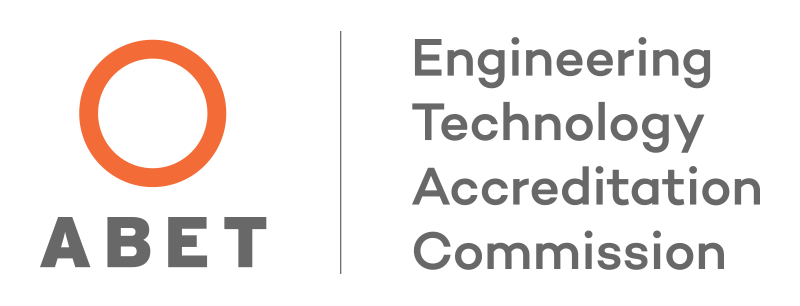An Admissions Counselor
Can Help You:
Finish your degree sooner | Make college affordable | Create a plan to achieve goals
Fill out our 3-Step form to get started
Online BS in Electrical Engineering Technology
The fully online Bachelor of Science in Electrical Engineering Technology program prepares you for electrical and engineering technology positions in technology-related industries such as electronics, electrical power, and semiconductors and computers.
Accredited by the Engineering Technology Accreditation Commission of ABET, the online program is designed specifically to advance job skills by ensuring a breadth of knowledge in technology concepts as well as a depth of understanding and skill in a chosen concentration area. Choose from two technical concentrations to gain a broad professional and technical foundation in a component of electrical engineering technology, so that you are prepared to apply what you have learned to a position in a technology-based industry.
Electronics, Power Systems
Fast Facts:
Electrical and electronic engineering technologists and technicians help electrical and electronics engineers plan and develop communications equipment, computers, medical monitoring devices, or other equipment that is powered by other electricity. They often work in product evaluation and testing, using measuring and diagnostic devices to test, adjust, and repair equipment.
The average median salary for electrical and electronic engineering technologists and technicians is $66,640 per year (Source: BLS)
Students who complete BSEET are ready to take The Fundamentals of Engineering (FE) exam, contingent on individual state regulations.
124
credit hours
Online BS in Electrical Engineering Technology Program Details
124 credits are required for the Bachelor of Science in Electrical Engineering Technology.
- Cornerstone Course
- Humanities
- Engineering Ethics
- Communications
- Written English Requirement
- Other credits to reach minimum
- Humanities Electives
- Social Sciences/History
- Natural Sciences and Mathematics
- Natural science
- Physics I
- Physics II
- Chemistry I
- Physics Lab
- Math
- Calculus I
- Calculus II
- Differential Equations
- Additional credits at college-level
- Natural science
- Arts and Sciences Electives
Core Electrical Engineering Technology Courses
Circuit Theory I
This 4-credit course arms students with the basic knowledge of circuits needed to compete in the industry. Topics covered include: current, voltage, resistance, Ohm’s Law, work and power, series and parallel resistances, resistance networks, Kirchhoff’s law, network theorems (Norton’s, Thevenin’s, and superposition theorems), mesh and nodal analysis, inductance, capacitance, and magnetic circuits. The course contains simulator-based laboratory learning activities.
Circuit Theory II
Including a lab component, this course builds on the foundational knowledge learned in Circuit Theory I, a prerequisite, through the learning of principles and applications of alternating current circuits. Topics covered include RC and LC transient response, the sine wave, reactance, complex algebra and phasors, impedance, Kirchhoff’s Law and network theorems (Norton’s, Thevenin’s, and superposition) in AC circuits, power in AC circuits, series and parallel impedances, impedance networks, filters, and resonance. The topic of engineering and technology standards is also discussed.
Electronics I
Focusing on semiconductor devices, this course, which includes a lab, serves as an introduction to electronics. Topics include PN-junction diodes, bipolar junction transistors (BJT), field-effect transistors (FETs), and Metal-Oxide Semiconductor field-effect transistors (MOSFET), At the end of the course students will be able to perform the analysis of DC transistors biasing, small-signal single and multi-stage amplifiers using BJTs, FETs, and MOSFETs, and frequency response of transistor single and multi-stage amplifiers.
Electronics II
Building on the foundations of Electronics I, a prerequisite for this course, this lab-containing course places an emphasis on troubleshooting of test circuits, and analysis based on computer simulation. Topics include differential amplifiers, stage gain in decibels, input and output impedances, linear IC operational amplifiers, frequency response, Bode plots, active filters, D/A and A/D circuits, oscillators and high frequency amplifiers.
Digital Electronics
This lab-containing course will teach students the principles and applications of digital circuits. Topics include number systems, binary arithmetic, logic gates and Boolean algebra, logic families, combinational and synchronous logic circuit design, logic minimization techniques (Karnaugh maps, Quine-McCluskey), counters, shift registers, encoders and decoders, multiplexors and demultiplexors, and interfacing.
Microprocessors
This lab-containing course covers 8, 16, and 32-bit microprocessor technology and features. Learn the principles and applications of microprocessors, including hardware and software, interfacing, assembly language programming, and microprocessor-based systems.
Computer Programming
Options for this requirement include the courses on Object-Oriented Programming, which covers problem solving and algorithm development using Java, or Introduction to Programming, which introduces programming in C++.
Project Management
Students study the skills required of a project manager and learn the methodologies, tools, and processes for success in planning and managing project scope, schedules, costs, quality, risks, communications, purchases, human resources, and stakeholders. Project management techniques learned in this course are applied in project-based learning activities in the electrical engineering technology courses, including the capstone.
Integrated Technology Assessment (Capstone)
This is the required capstone course for the Bachelor of Science in Electrical Engineering Technology, In this end-of-program course, students reflect on past academic and professional experiences to develop learning statements supported by evidence related to the Electrical Engineering Technology degree outcomes, culminating in the Integrated Technology Assessment portfolio. Additionally, students are required to complete an online final examination designed to assess the basic knowledge and understanding achieved in electrical engineering technology. This examination is administered in Module 2 through Module 7.
Finally, students are required to undertake a hardware-based capstone project that is spread through all the course modules. Through this capstone project, students demonstrate integrated learning experience and the outcomes of this degree program.
Lab Requirement:
Students must complete at least eight laboratories:
- Four labs from the core area: AC Circuits, DC Circuit, Digital Electronics, Electronics I, Electronics II, Microprocessors
- One physics lab in the natural sciences/mathematics area
- Three labs in the area of concentration
Free Elective Component
- INL 102 Information Literacy: 1 credit
- Additional credits to reach 7 credits
Concentrations (Choose One)
The 15 credits for a concentration must include 9 upper-level credits and at least 3 courses with labs.
Electronics
Gain foundational knowledge of electronics hardware and software and become equipped to stay up-to-date with the rapidly changing technology environment. This concentration focuses on the analysis, design, assembly, testing, upgrading, and maintenance of electronics, computers, and communications hardware, so that students are prepared for various positions in the field.
- Electronic Communications
- Advanced Digital Electronics
- Data Communications
- Control Systems
- Microprocessors II
Power Systems
Stay up-to-date with the rapidly modernizing power electronics and power systems technology environment with this concentration centered on the analysis, design, assembly, testing, upgrading, and maintenance of DC/AC power conversion systems, electric power generation and distribution, and power control technologies. The concentration also emphasizes the analysis, design, development, operation, and troubleshooting of single phase and three-phase electric motors and electric machines, data acquisition, and instrumentation.
- Programmable Logic Controllers
- Generation and Transmission of Electric Power
- Power Electronics
- Electrical Machines/Energy Conversion
- Instrumentation and Data
- Apply general and discipline-specific concepts and methodologies to identify, analyze, and solve technical problems in the electrical discipline.
- Demonstrate an individual desire and commitment to remain technically current with, and adaptive to, changing technologies through continuous learning and self-improvement.
- Demonstrate independent thinking, function effectively in team-oriented settings, and maintain a high level of performance in a professional/industrial environment.
- Communicate effectively in written and oral forms in a professional/industrial environment.
- Perform ethically and professionally in business, industry, and society.
- Demonstrate and utilize leadership principles in the field of electrical engineering technology.
Learn more about this program’s student outcomes, enrollment, and graduation data.
2023 Academic Year
New Enrollments: 292
Graduations: 64
View our catalog for additional information.
Common Careers with an
Online BS in Electrical Engineering Technology

- Circuit Design Engineer
- Hardware Technician
- HVDC Maintenance Engineer
- Instrumentation Engineer
- Semiconductor/Nano-electronics Manufacturing Engineer
- Software Developer
Explore Common Careers

Kevin Fealey
Bachelor of Science in Electrical Engineering Technology
2014
Recognitions & Accreditations
ABET ACCREDITATION
Bachelor of Science in Electrical Engineering Technology accredited by the Engineering Technology Accreditation Commission of ABET, https://www.abet.org, under the commission’s General Criteria and Program Criteria for Electrical/Electronic(s) Engineering Technology and Similarly Named Programs.
Institutional Accreditation
Excelsior University is an accredited institution and a member of the Middle States Commission on Higher Education (MSCHE or the Commission) www.msche.org. Excelsior University’s accreditation status is accreditation reaffirmed. The Commission’s most recent action on the institution’s accreditation status on June 23, 2022 was to reaffirm accreditation. MSCHE is recognized by the U.S. Secretary of Education to conduct accreditation and pre-accreditation (candidate status) activities for institutions of higher education including distance, correspondence education, and direct assessment programs offered at those institutions. The Commission’s geographic area of accrediting activities is throughout the United States.
All of Excelsior University’s academic programs are registered (i.e., approved) by the New York State Education Department.




